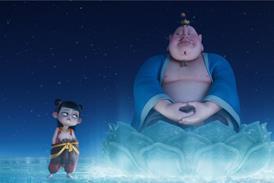The Shanghai-based filmmaker is seen as one of the most prolific in Chinese film history. He was also a member of the Academy of Motion Picture Arts and Sciences and of the Directors' Guild of America.
Xie is known for his realistic style, a strong sense of history and his excellence in depicting women's stories. He has directed more than 30 films, including the 1986 Hibiscus Town, a film that reflects on the cultural revolution period and is based on the novel of the same title by author A Cheng.
He also directed the 1997 historical drama The Opium War and two post-revolution films Woman Basketball Player No. 5 (1957) and Red Detachment Of Women (1961).
Hibiscus Town won the Crystal Globe at the Karlovy Vary International Film Festival and was also a sweeping success at 1986 Golden Rooster Awards, taking home Best Picture, Best Actress (Liu Xiaoqing) and Best Art Direction. The Legend Of Tianyun Mountain, a film about a girl forced to leave her intellectual lover by the Red Guards, won the Best Picture category in both the Chinese Golden Rooster Awards and Hong Kong Film Awards in 1981.
Xie's last film is a three-minute short, China, Standing As A Tree, a film dedicated to the victims of the May 12 Sichuan Earthquake
'Xie's films are like a chronicle made by celluloid, recording the rise and falls of contemporary Chinese society,' said Cheng Weidong, chairman of Zhejiang Province Writer's Association.
In 2007, Xie received the Lifetime Achievement Award at the Shanghai International Film Festival.
The funeral and memorial ceremony of Xie Jin will be held on Oct 26 in Shanghai.






















No comments yet